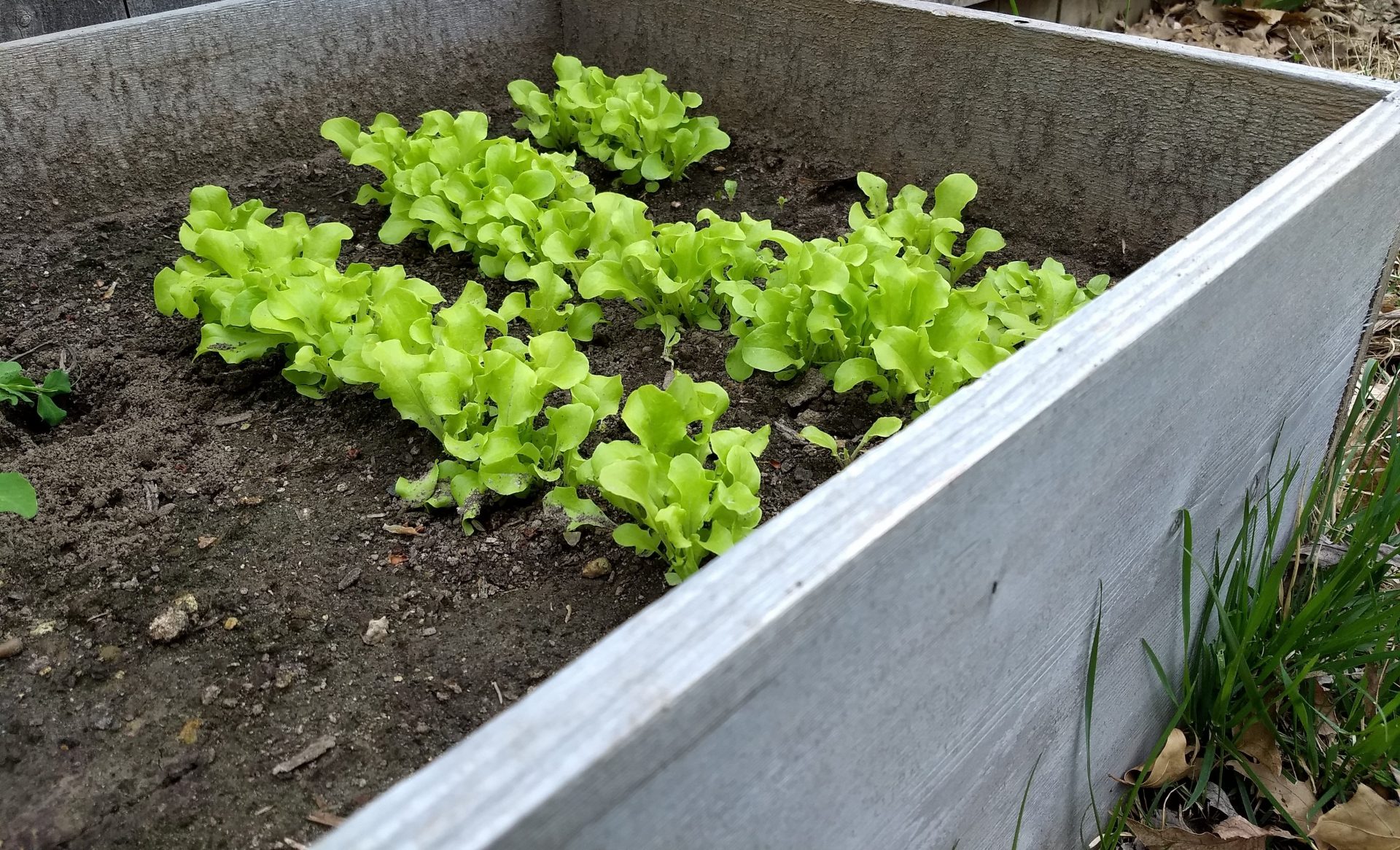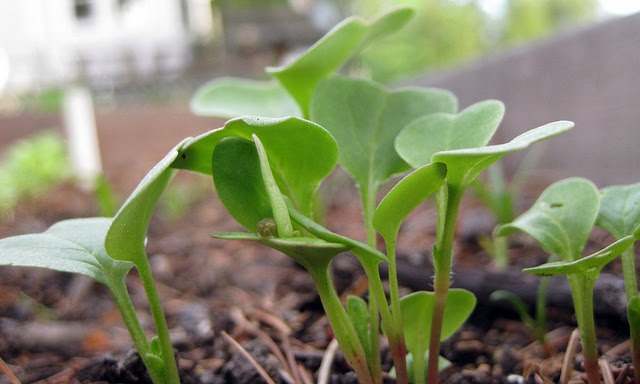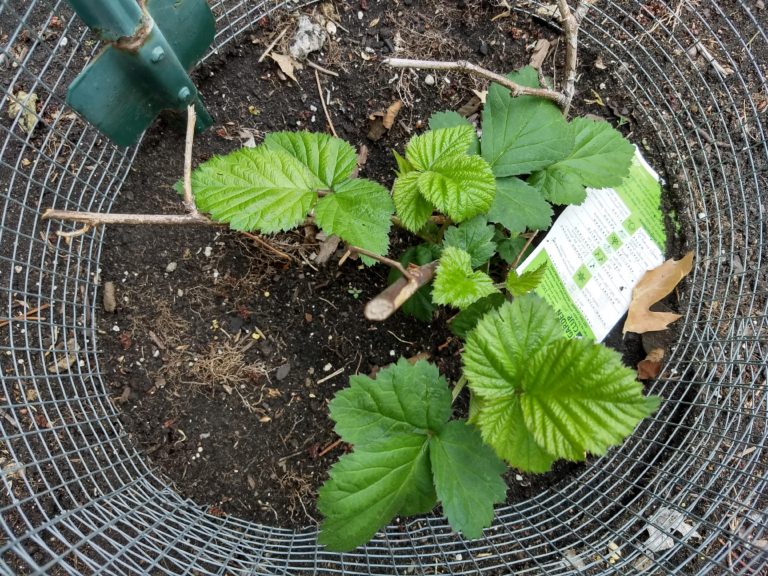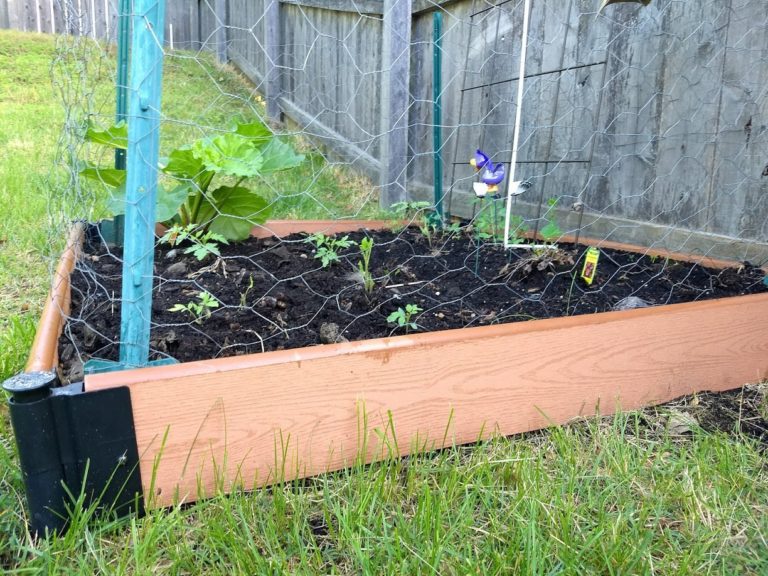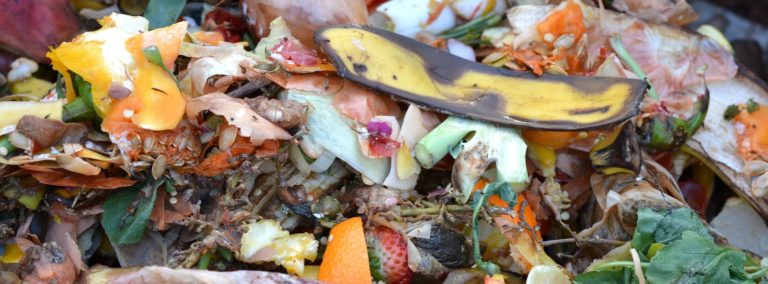How to Keep Rabbits From Eating Lettuce Plants
Fresh leaf lettuce is one of the easiest and fastest-growing edibles you can plant in your home garden, and even a small area — as little as one square foot — planted with lettuce can provide you with a lot of fresh salad throughout the spring. However, you and your family aren’t the only ones who like to eat fresh greens. Lettuce also is a favorite among the local wild rabbit population, and while rabbits are cute, they can reduce a leafy vegetable patch to bare dirt overnight. So what do you do to protect your salad bar?
Rabbits may seem daunting to new gardeners at first, but they are fairly easy to control with a few simple measures. (Squirrels, on the other hand, are an entirely different story.) I’ve been gardening as a hobby since my teen years, and here are my suggestions, for dealing with rabbits based on my experiences.
How to Protect Vegetable Plants from Rabbits:
- Grow leaf lettuce (and other leaf veggies like spinach) in large pots. This has been highly effective for my family. I discovered this trick when I was in high school, and my mom still plants lettuce in large pots on her patio. Use a pot (plastic, terra cotta, etc.) that is at least 12 to 24 inches tall. This tends to be high enough that rabbits can’t reach the plants, or they don’t think it’s worth the effort. As an added benefit, pots are portable and can be placed in a variety of spots around the yard, garden, porch, or patio.
- Grow leaf lettuce in raised beds with sides at least one foot high. This is similar to growing lettuce in large pots. This spring, I planted my lettuce in a homemade wooden raised bed with 12-inch-high sides. So far, the rabbits have not touched it, probably because the sides are too high for them to easily jump in.
- Install rabbit fencing or chicken wire fencing around the garden. A fence is an effective barrier method, but in order for it to work well, it must be done properly. That means digging down a bit and installing part of the fence under ground so rabbits can’t easily tunnel under the fence. They are notoriously good at finding their way through or under fences. I have a friend who installed wire fences around her garden only to see a rabbit raise a group of babies among her vegetables. That said, a barrier with some weak points can be better than no barrier at all. Fencing also may be less expensive than building raised beds, depending on how you build your raised beds. If you want to grow large amounts of lettuce, fencing also is cheaper than purchasing a lot of large flower pots. Chicken wire, rabbit fencing, and metal or wood stakes can be found at any hardware or garden supply store.
- Make cloches to cover lettuce and other small, vulnerable plants. Form tube and dome shapes with chicken wire to create barriers that are just the right size for protecting small plants from rabbits. I do the same thing to keep squirrels from digging in my flower pots. Find directions for simple cloches here and here, and here’s a link to a fancier-looking cloche. You also can purchase nice-looking cloches on sites like Amazon, but be prepared to pay a lot more. As a cheaper alternative, you can buy plastic baskets at Dollar Tree that may protect your plants.
Here are a few other methods that have been less effective, at least in my experience:
- Use a commercially purchased rabbit or animal repellent spray. These don’t seem to deter rabbits as much compared to physical barriers like tall flower pots, fences, cloches, or raised beds. They also stink up the yard and have to be reapplied after it rains.
- Sprinkling cayenne pepper on and around the plants. It blows off or washes off when it rains.
I have also heard of people scattering dog hair or human hair around the garden so the scent deters rabbits and other pests. I have not tried this personally, so I can’t speak to its effectiveness, and it may not be the most sanitary method to use around edible vegetable plants. I would recommend this only for non-edible flowers and plants. My hair stylist has told me a few people regularly ask for hair clippings from her salon to use in their gardens. This method does require applying new hair after rain falls, as the rain washes away the scent that deters animals.
How about you? How do you protect your garden from hungry rabbits or other critters?

